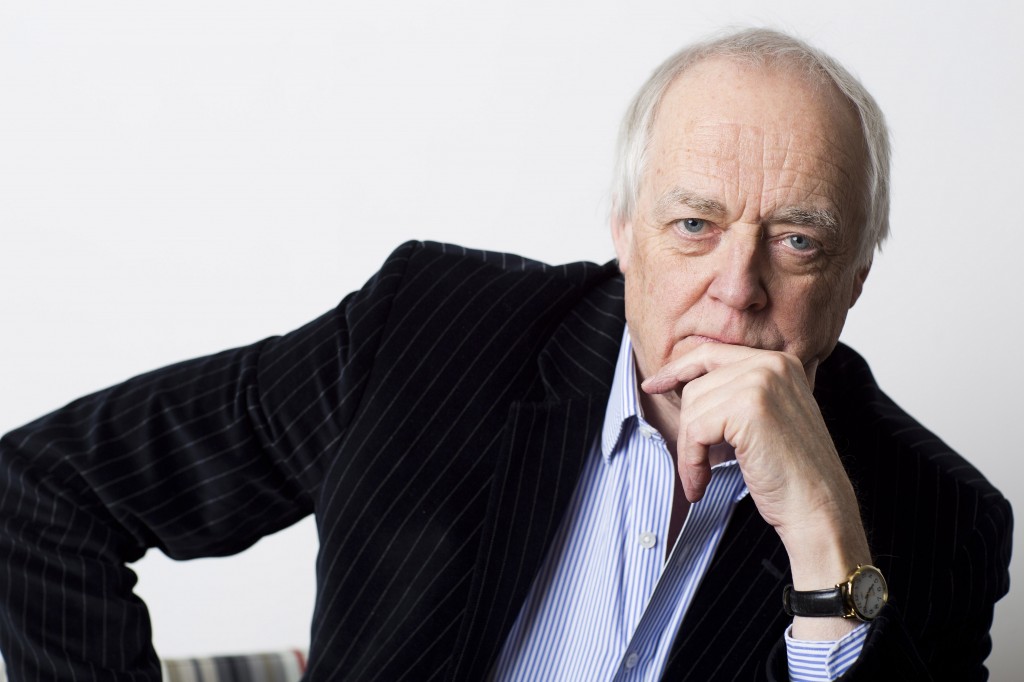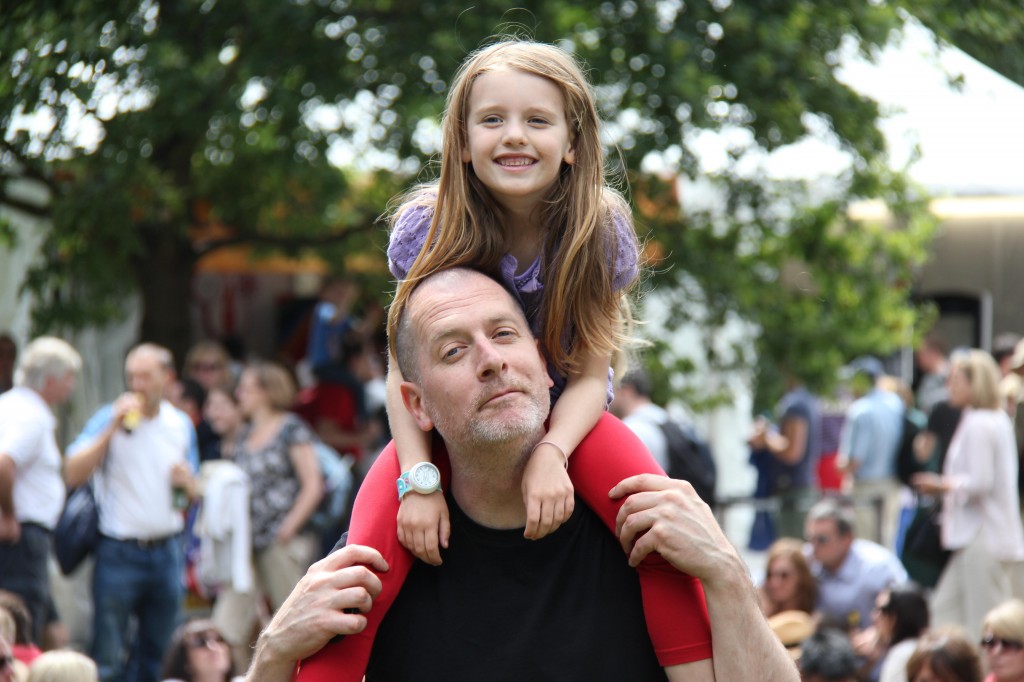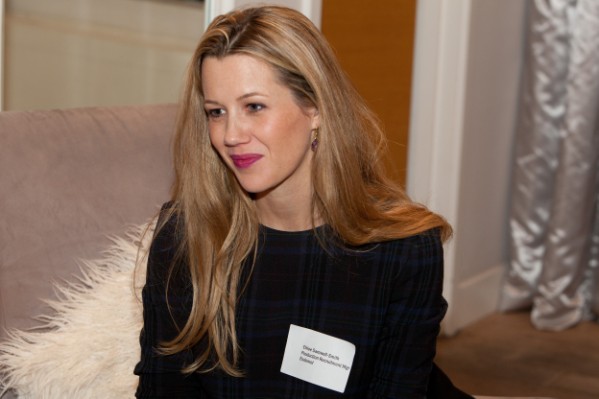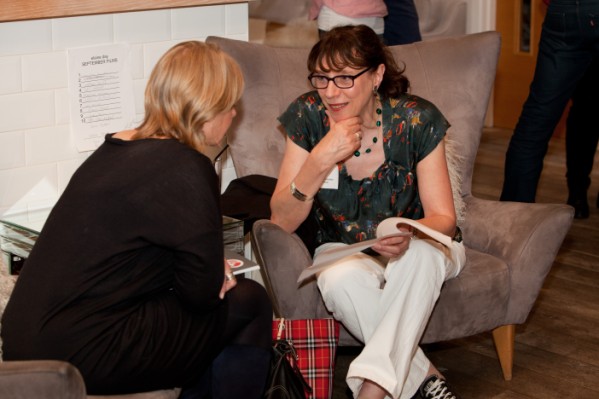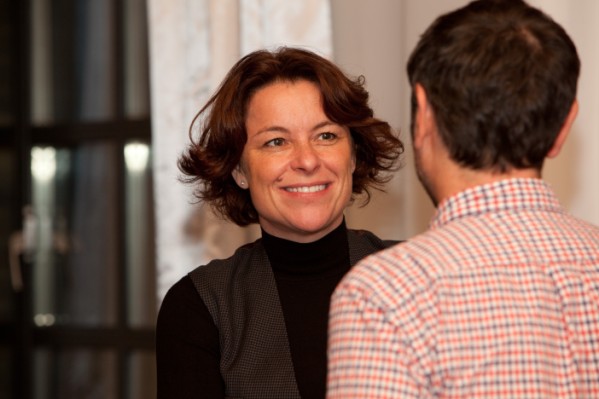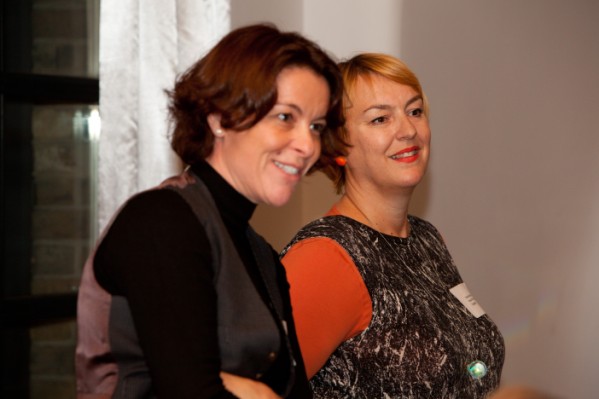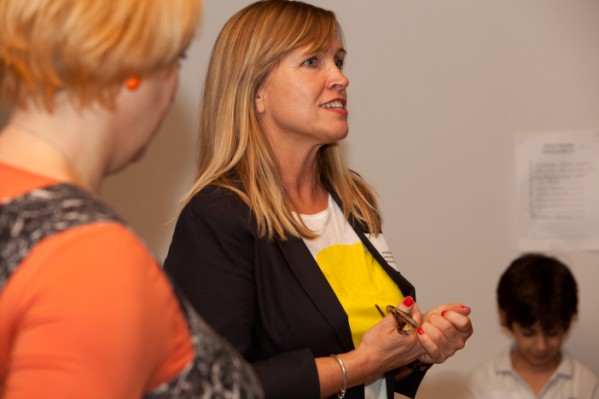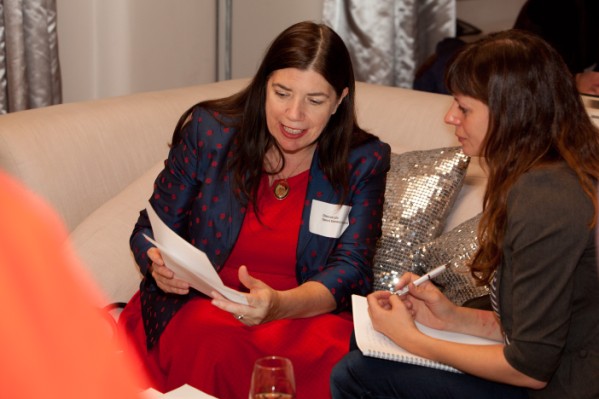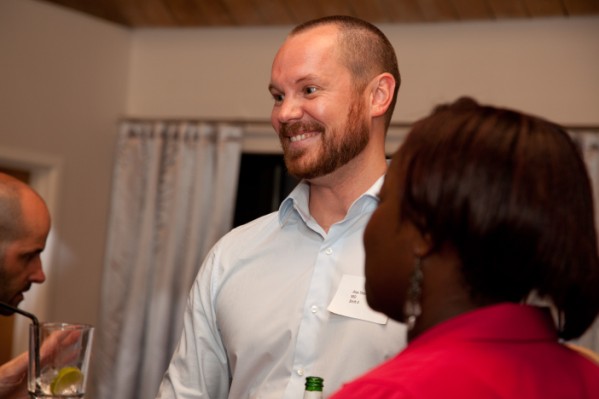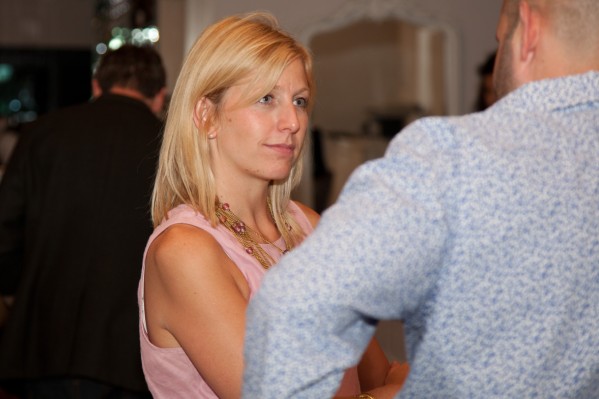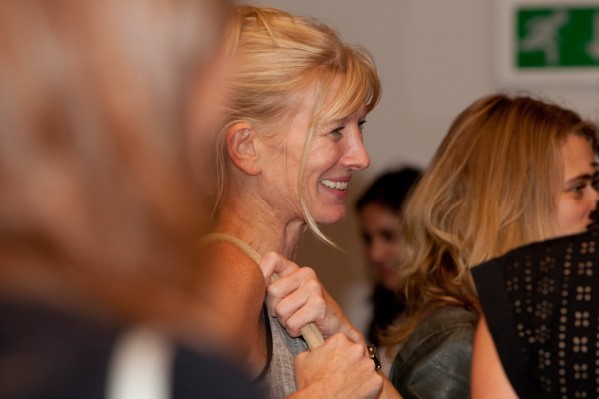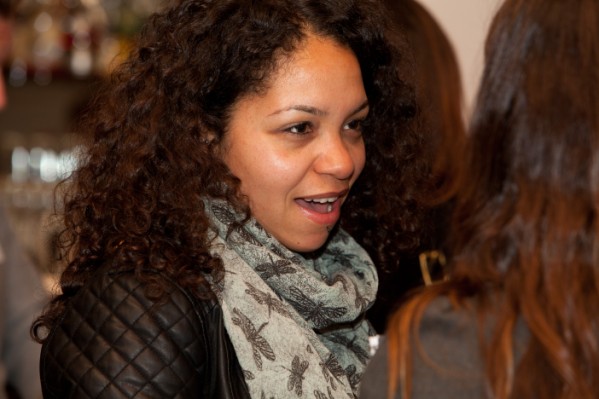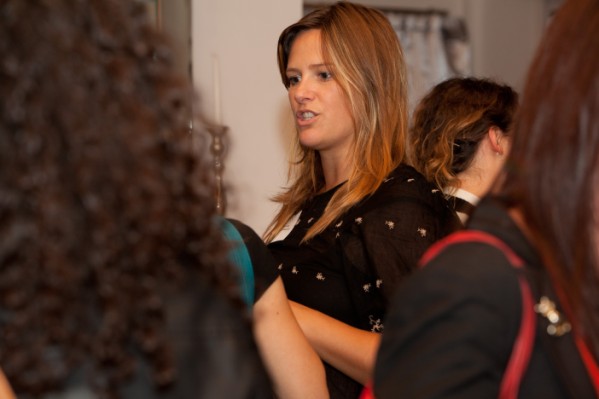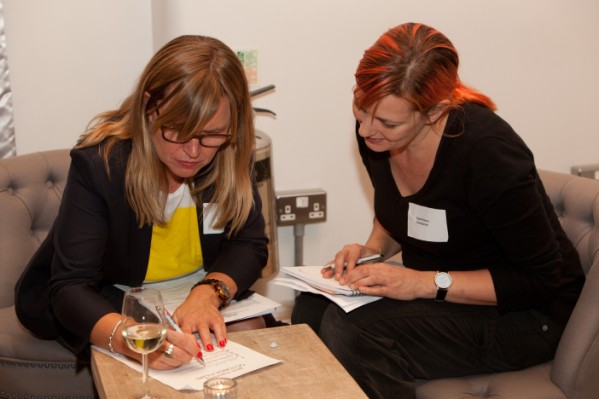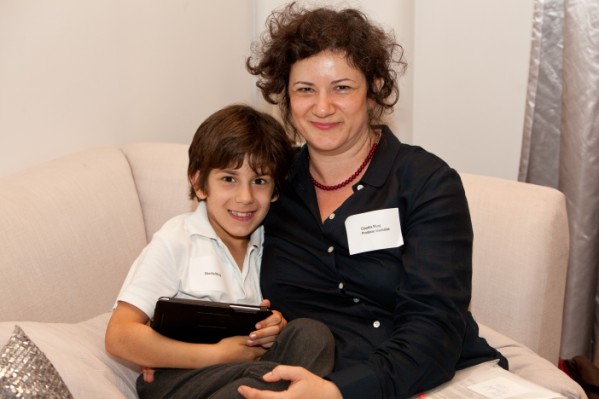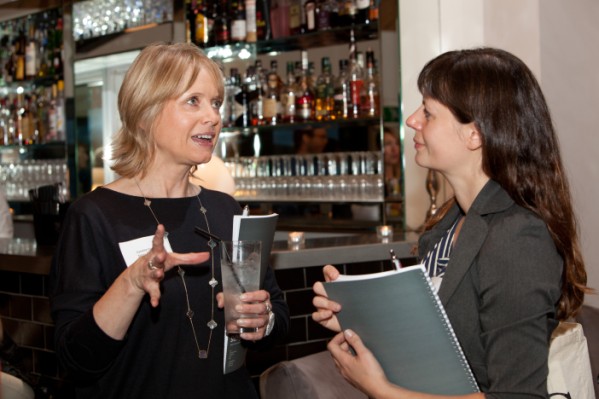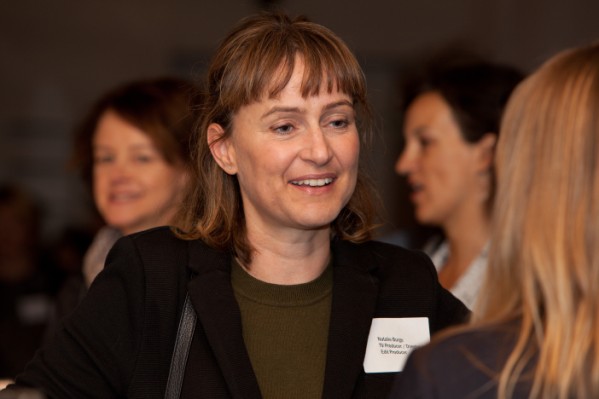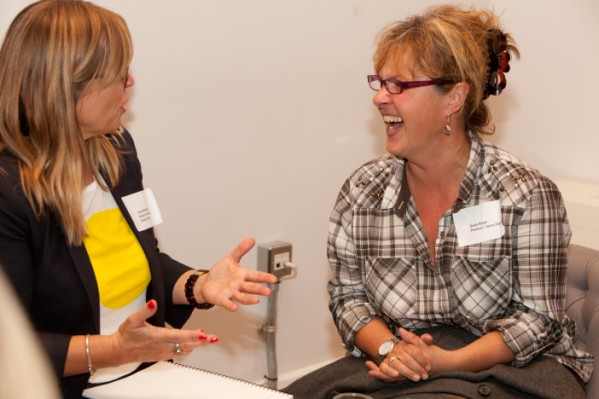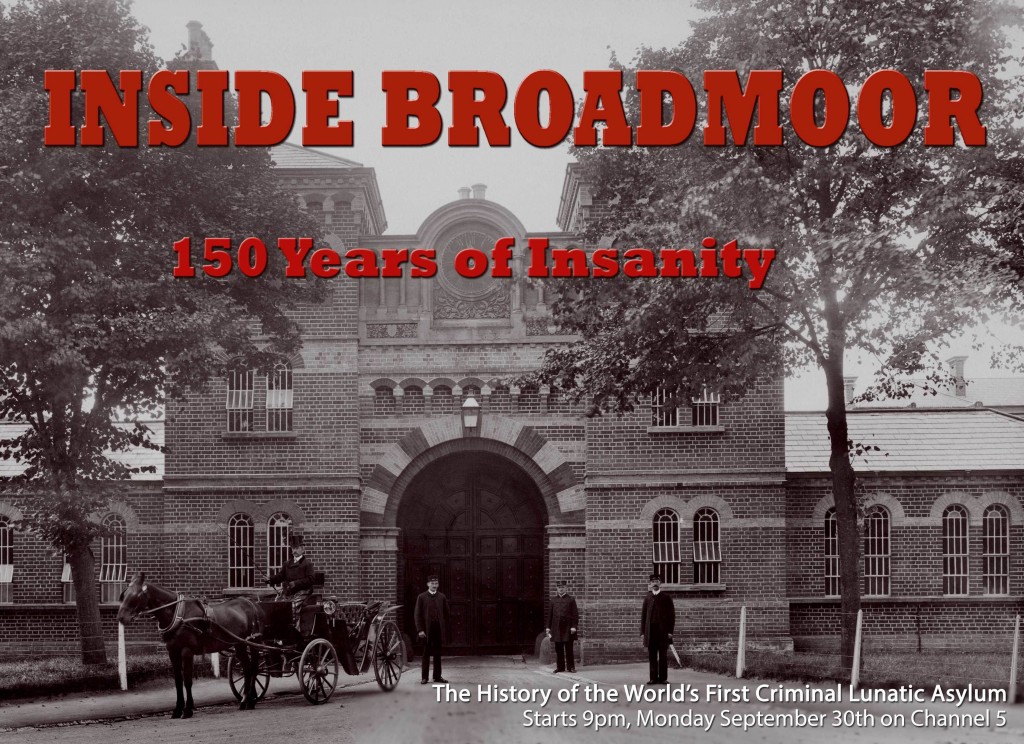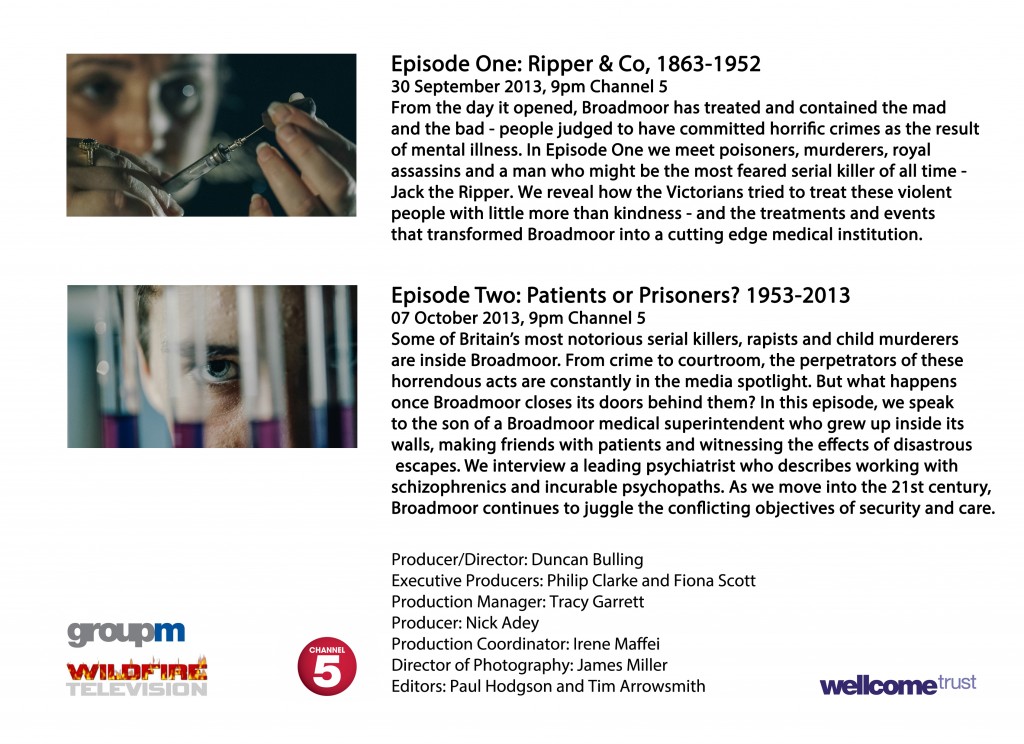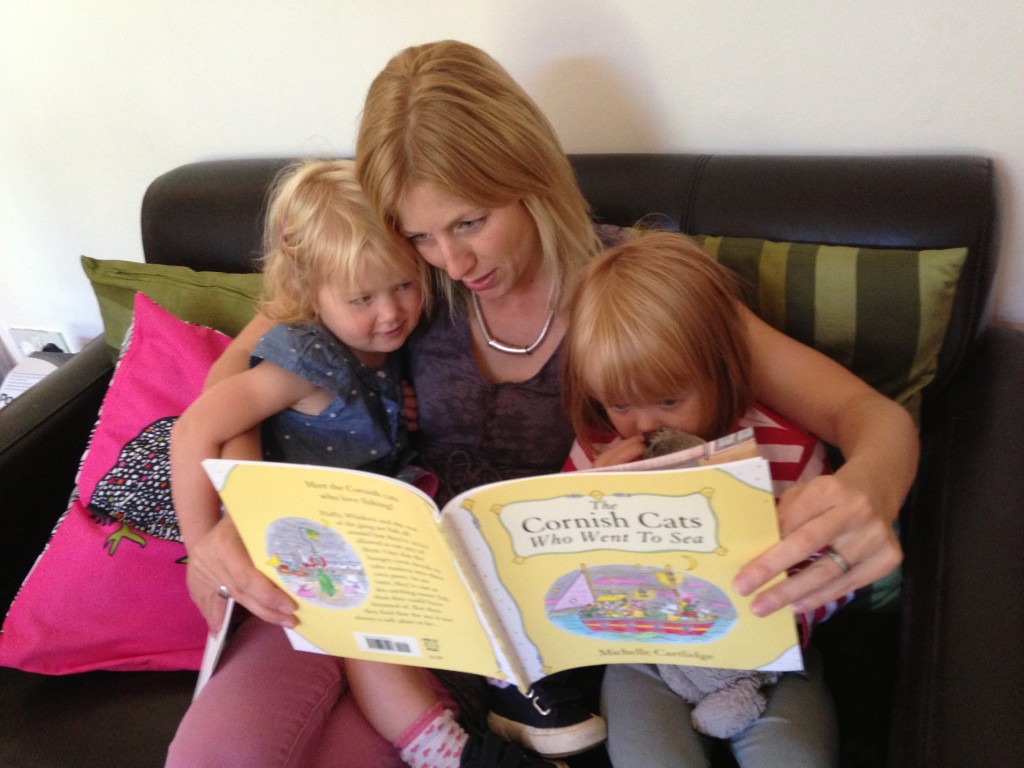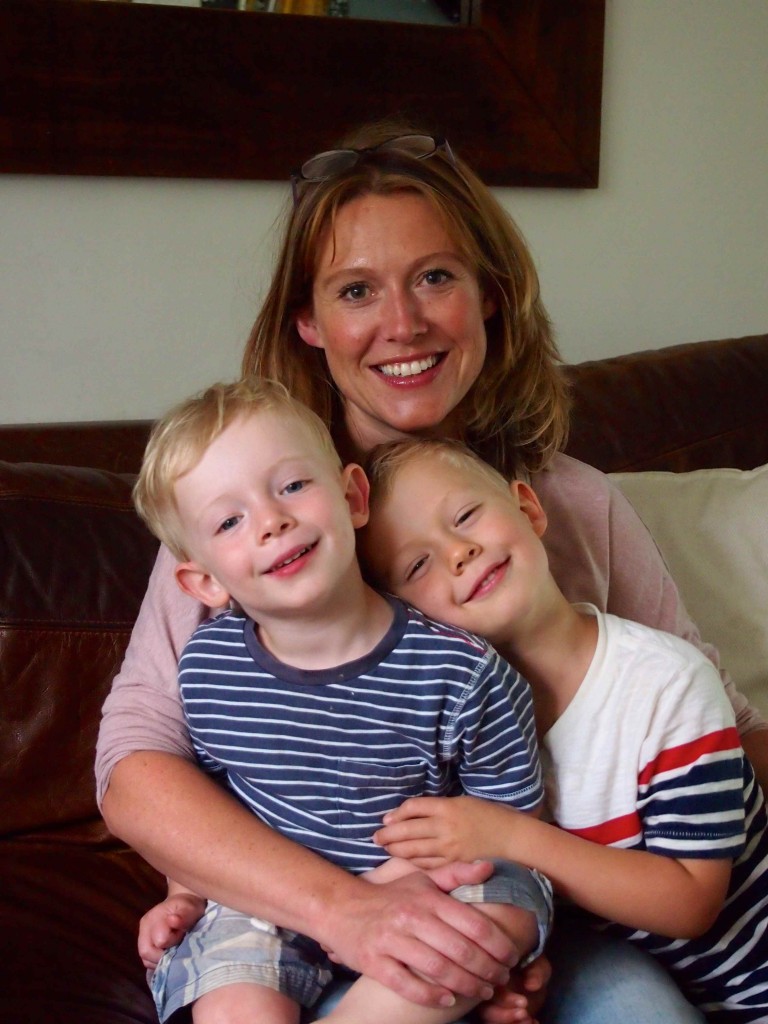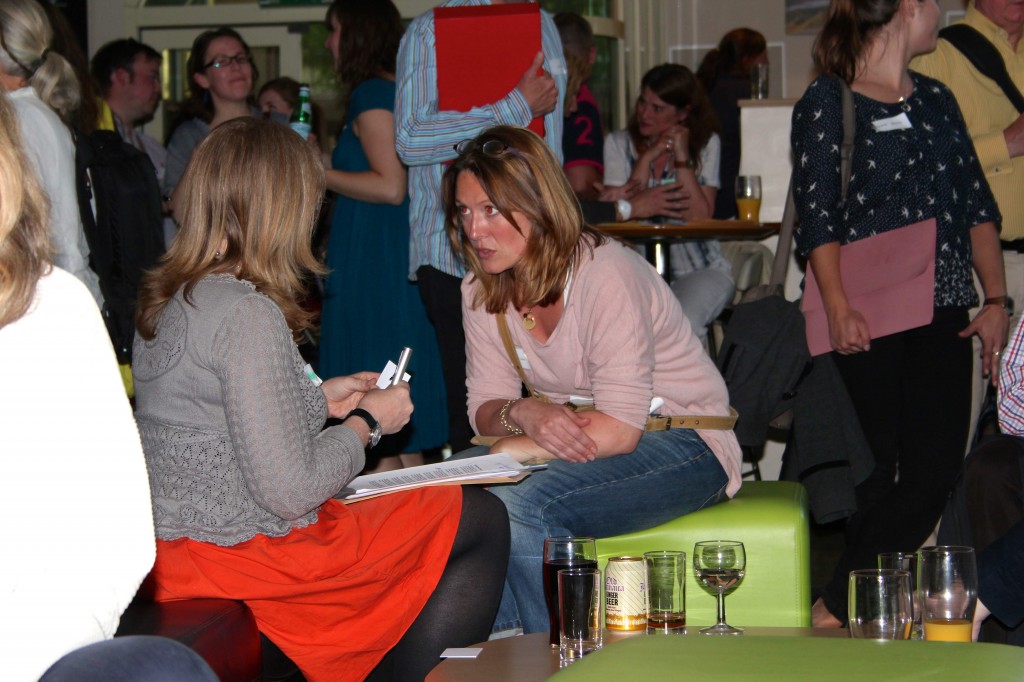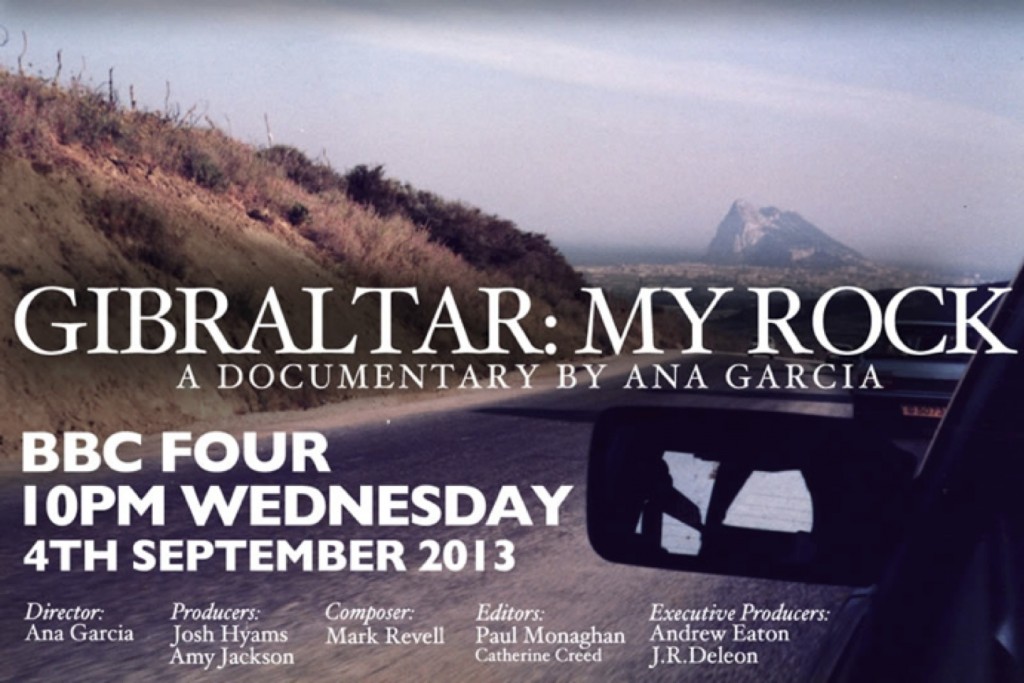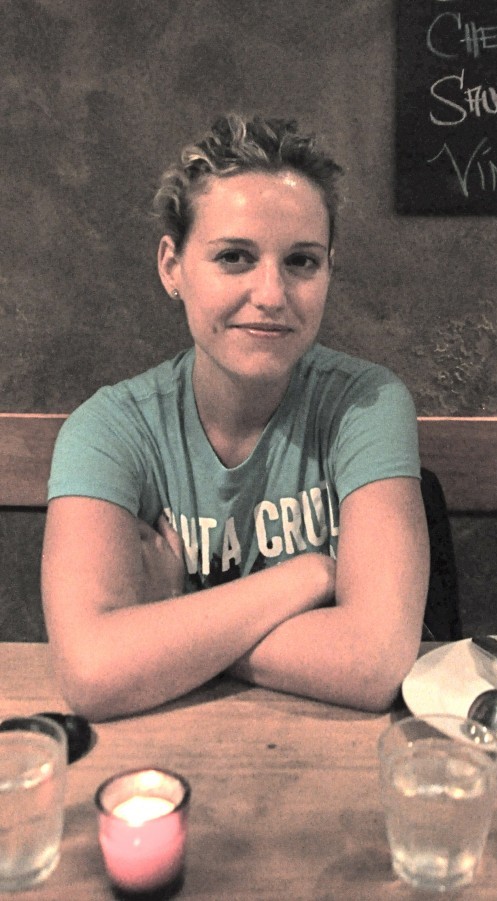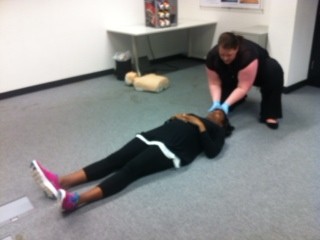Senior Producer Ali McBride was one of the four returners on the Media Parents Back to Work Scheme at Edinburgh TV Festival. She recently wrote to Media Parents to say ”I’m back in the thick of it and working again I think I’ll be fine” – woohoo! Here are Ali’s thoughts about going back to work when she was on maternity, and then on the Festival experience.
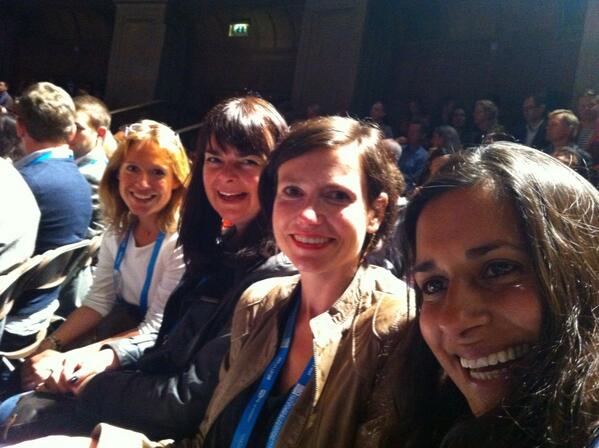
Ali McBride, second from left, with Harriet Wallace, Kirsty Smith and Sidra Khan, media parents delegates waiting for Kevin Spacey's MacTaggart Speech at GEITF.
Bewildered, daunted, excited, pressured and engaged are all emotions I tend to feel after receiving notes from a commissioner about a new programme I’ve cut. This time those emotions are associated with going back to work after having my daughter Matilda in October 2012, writes Ali McBride.
Life before Matilda was your stock ‘work hard, play hard’ TV affair. I loved it. For 20 years, I worked across television and radio making stuff I’m proud of and achieving one of my goals of becoming a Series Producer. Fact Ent is my first love and the genre I want to return to and flourish in. I have just finished a 4 week stint as an Edit Producer which has left me with a plethora of mixed emotions about the work I want to do, am capable of doing, and know I can deliver as a new mum.
I do believe parents can be successful Series Producers with focus and without having to sell their souls to TV in the process. I always managed to have a life before I had Matilda and this made me a better director. I know with a little push and belief I can do the same as an SP and mum.

The Back to Work Scheme gave Ali McBride the push she needed, she is now back in the thick of it, working in TV. http://www.mediaparents.co.uk/freelancers/6744/ali-mcbride
The Edinburgh TV Festival was great. It was like being immersed into an insane TV bubble of ideas and discussion, surrounded by the great and the good of the industry who were all buzzing from the large amounts of free flowing coffee supplied to keep the whole juggernaut going.
After the initial shock of the size of the place, and once you’ve got a couple of sessions under your belt, you gain the confidence to do what was once very simple… talk to people. Being with Media Parents was a great conversation starter and everybody I spoke to was hugely supportive of the initiative. STV, Nine Lives, Tern Television, Raise The Roof and the BBC were all happy to discuss the realities of flexibly working and how it could work in production. Refreshingly all of them thought it could work.
Before going to the festival, and even before having my baby, I would never have had the confidence to suggest flexible working, especially at interview stage. It’s a hugely competitive market we’re in and I would have seen that chat going down like a wet balloon. I now have the confidence to have that discussion.
As for the sessions: ‘The Undateables’ reminded you that fabulously sensitive and heart-warming series are being made. Liz Warner’s company betty have totally got it right in terms of their duty of care to the contributors and commitment that the same team saw the production through from start to finish.

Liz Warner, betty CEO gave the Back to Work Mums tips on Surviving the Edinburgh TV Festival. https://blog.mediaparents.co.uk/2013/08/5-minutes-with-betty-ceo-liz-warner-on-making-the-most-of-edinburgh-tv-festival/ Pic by Mark Johnson
‘Room 101’ was like watching a live OB. Stuart Murphy put TV snobbery into the room to great applause. The discussion with the Channel controllers about the role of commissioners was insightful and quite damning for most the channels, it was just a shame they didn’t have time for a Q &A, but I guess we might have been there all night.
For any Media Parent who’s currently on a career break, the TV Festival will either remind you of all the things you miss about the industry… the buzz, the fun and the creativity, or it will send you running back into the bosom of your family thinking my life is so much more manageable without all those people and their handheld devices in it… for me it was the former.
Q&A about the Media Parents Back to Work Scheme at GEITF:
1. How did you hear about the scheme?
Through the website, and I’d heard of Media Parents through colleagues.
2. Thoughts before going to Edinburgh…
It was the first time I’d been away from my daughter so that was tough. It was also the first time I was going to be back in Scotland after leaving last year to have my baby so that was exciting. I have been before and was glad to know I was meeting other mums there – there’s definitely safety in numbers!
3. Reax to Liz Warner’s tips on Surviving the Edinburgh TV Festival.
https://blog.mediaparents.co.uk/2013/08/5-minutes-with-betty-ceo-liz-warner-on-making-the-most-of-edinburgh-tv-festival/ I took on board what she said and used all of her top tips.
4. Meeting the other Media Parents
It was great to meet the other mums. There was an easy, instant bond. I think we were good at boosting each other’s confidence. We defiantly all felt into our stride on the second day. It was also interesting because we are all at very different points in our career and so we all got very different things from the festival.
5. What does Media Parents mean to you?
I’m totally impressed with the work Media Parents are doing and how much they have done already. They seem to have a good profile and most people knew of them. I will defiantly keep using the site and help in any way I can to promote their work in the nations and regions. I’ll be sending out lots of links to the site. I think you could defo get a stand at the Festival or run some collaborative sessions with the TV companies around the issues of flexible working. I’d go so far as to say it would make an incredible session… I’m sure the issue has been raised before but I’d love to know what the different channels are doing to help parents stay in their careers. It would make a great debate.
6. Connections made…
I did gravitate to a lot of my old Scottish contacts but had some great chats about flexible working and working half of the week from home for them, which was positive. I didn’t meet as many Manchester people as I’d have liked, as the delegates list doesn’t tell you which regions people are from or represent. I had searched the companies I knew and had some good conversations with them too.
7. How has the experience made you feel about TV and working again?
I knew I wanted to work in TV again but was feeling somewhat overwhelmed at the prospect of juggling it with being a new mum. After all the chats I’ve had I no longer feel alone and feel confident enough to raise the issue of flexible working.
Ali McBride: http://www.mediaparents.co.uk/freelancers/6744/ali-mcbride
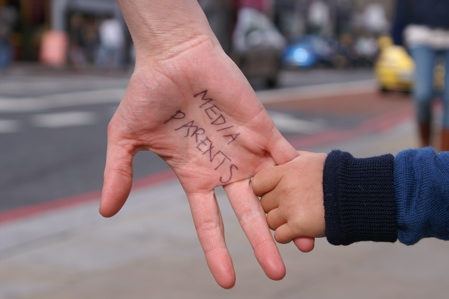
The next Media Parents event is a CV Surgery at the BBC FastTrain event in Cardiff on November 7th. For networking, jobs and great events please join www.mediaparents.co.uk


